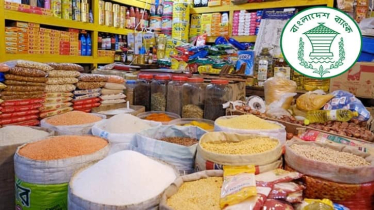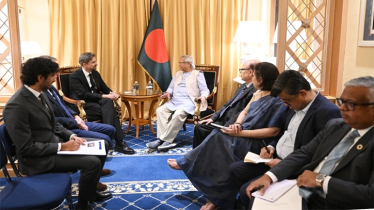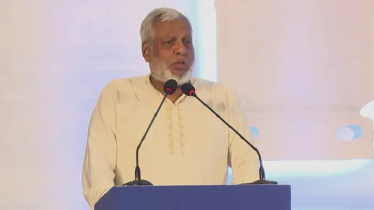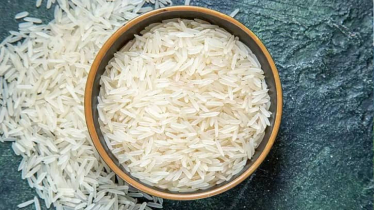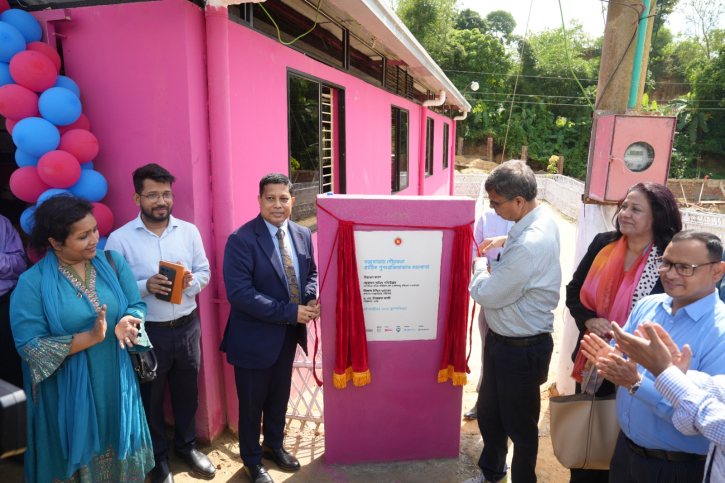
Cox’s Bazar has taken a major step toward sustainable waste management with the inauguration of its first plastic recycling factory. The initiative aims to transform non-recyclable plastic waste into valuable resources, marking a significant milestone for the region.
The plant, located in the Ramu upazila’s Mithachhari area, was inaugurated on Thursday, October 9, 2025, by the Honourable State Minister for Environment, Forest and Climate Change, Mohammad Nasir Uddin.
The event was attended by World Bank Environmental Specialist Bushra Bisha, UNOPS Project Success Manager Tomison Salam, Cox’s Bazar Deputy Commissioner Tanzim Ul Islam, Executive Engineer of the Department of Public Health Engineering Imran Majid Pramanik, Additional Secretary of the Ministry of Environment Md. Jasim Uddin, BRAC’s Climate Change Programme Director Dr. Tamzidul Ali, and HSMP Programme Director and Acting In-Charge Choudhury Kawser.
Cox’s Bazar, known for its stunning tourist attractions and large displaced population, generates a significant amount of plastic waste every day. Studies indicate that the district produces approximately 34 tons of plastic waste daily, much of which includes low-value plastics such as polythene, multilayer packaging, and flexible plastic materials that are difficult to recycle and have minimal market demand.
This recycling facility aims to turn such waste into sustainable and durable products like eco-friendly bricks, tiles, and paving blocks.
Speaking at the inauguration, State Minister Mohammad Nasir Uddin described the initiative as a milestone in sustainable waste management. He emphasized that it not only helps protect the environment but also creates employment opportunities for local women and vulnerable communities. The minister expressed optimism that such initiatives would expand across the country in the near future.
Tomison Salam noted that this project serves as an excellent example of transforming challenges into opportunities through multi-sector collaboration. He reaffirmed UNOPS’ commitment to supporting Bangladesh’s journey toward a plastic pollution-free future and sustainable waste management through community empowerment.
Dr. Tamzidul Ali of BRAC stated that under the “Plastic Free Rivers and Seas for South Asia (PLEASE)” initiative, BRAC has been working for years to make Cox’s Bazar free from plastic pollution. The establishment of this recycling plant, in collaboration with the Cox’s Bazar Municipality, is part of that broader goal. He added that the project will create new income opportunities for plastic collectors, waste handlers, factory workers, and product manufacturers.
Executive Engineer Imran Majid Pramanik informed that, alongside the recycling facility, a system for managing solid and biodegradable waste is also being established to ensure comprehensive waste management.
The recycling plant was established under the “Plastic Free Rivers and Seas for South Asia (PLEASE)” project, implemented jointly by the World Bank, UNOPS, and the South Asia Cooperative Environment Programme (SACEP). BRAC is executing the project locally in collaboration with the Cox’s Bazar Municipality. The initiative is part of a regional effort to address the growing problem of plastic pollution in South Asia.
Covering an area of 5,280 square feet, the facility can process up to 200 kilograms of plastic waste per hour. The plant is equipped with 2,000-liter waste storage tanks, solar power generation systems, ventilation and fire safety mechanisms, and 24-hour monitoring technology.
Authorities hope that this facility will not only create employment, especially for women waste collectors, but also help significantly reduce plastic pollution in canals and coastal areas, preserving the region’s ecological balance and contributing to Bangladesh’s sustainable development goals.


